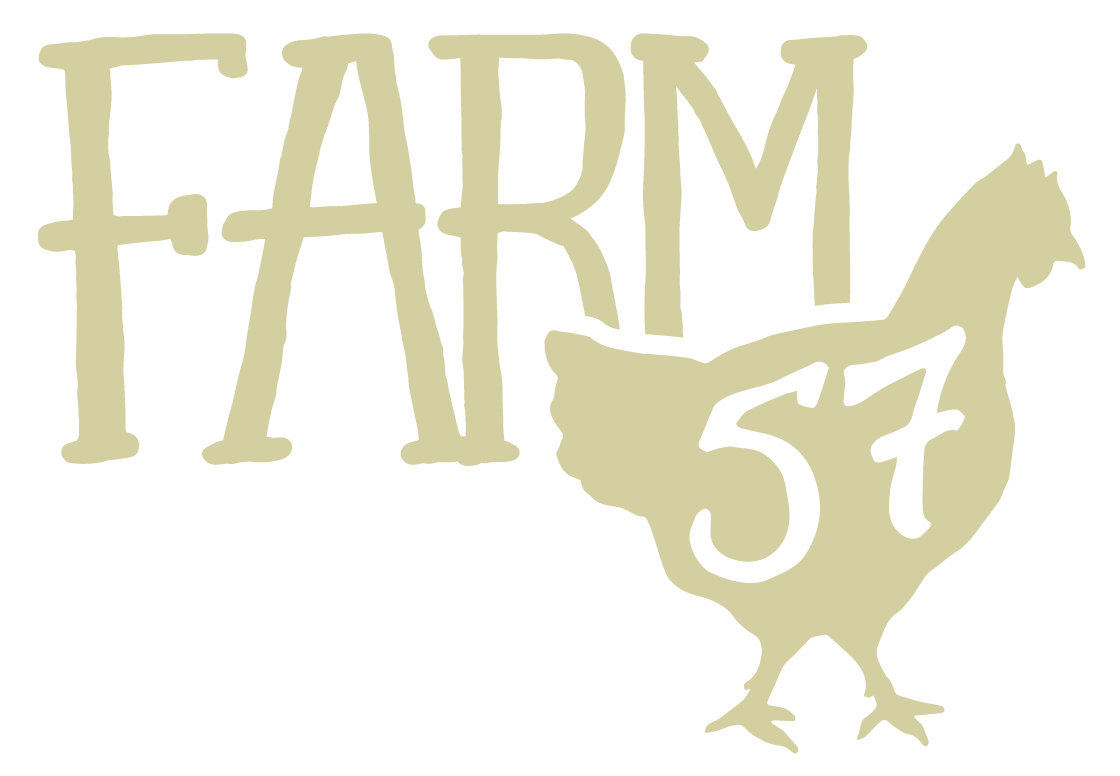The Pasture Raised Life
At one of our recent farmers markets, we took our pastured chicken and pastured eggs in addition to our usual market items, and on that day we consistently answered the question, “Your eggs are pasteurized?”
Pasteurization is usually linked to milk and dairy products, and it’s the process by which gentle heat is applied to the product to aid its shelf life. (Raw milk vs. conventional milk is a completely different discussion!)
At the stand, when we clarified that our products are pastured, and the next natural question was, “What’s that?” and, “What does that mean?"
Here at Farm57, our model is pasture-raised, regenerative agriculture. This means that all of our animals are living day and night outdoors on green grass (not on concrete or dirt floors in confinement like conventional meats), and depending on the animal, they are rotated every day, or every few days, to keep them on fresh pastures. This keeps them away from their excrement and pathogens, and they are constantly eating fresh forage, bugs, grubs, roots, and whatever else they may find for dessert. This is why pasture raised meat is known to have higher Omega 3s!
Clean pastures with lush grass not only means clean food for the animals to eat, it means they are providing us with clean food! And because of this model, every part of the animal from nose to tail is able to be used, including hearts and livers.
Clean food can heal us, and it can heal the land. The regenerative agriculture model allows the animals to dig and scratch the soil, disturb it, add nitrogen, nutrients, and organic matter to build soil and reduce carbon. By rotating our animals we let the pastures rest, sanitize, and regenerate before the animals set foot back on it.
What questions do you have about pasture raised food? Comment below!
paddock #3 on left, Paddock #2 on right, roughly 7-10 days apart.
Look at that forage! Paddock #2 on left, Paddock #1 on right. Roughly 7-10 days apart.


